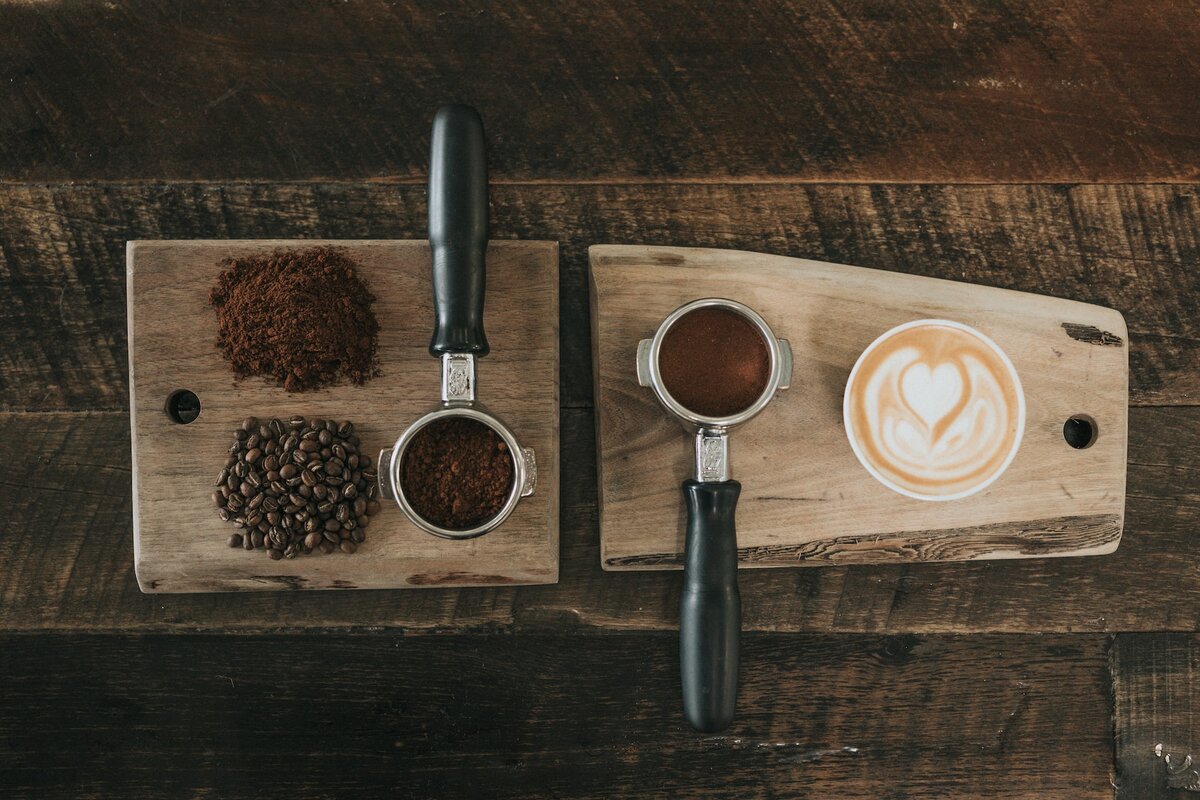When it comes to managing pain and inflammation, meloxicam is a go-to for many. But in the hustle of daily life, where a cup of coffee is often a morning staple, it’s crucial to understand how meloxicam and caffeine might mix. Could your meloxicam and coffee pairing affect your medication’s effectiveness, or is it harmless to enjoy the two together? This post dives into the dynamic between meloxicam and caffeine, aiming to give you a clear picture of how to balance your medication with your caffeine intake safely.
On this page:
Unpacking Meloxicam: Uses, Benefits, and Side Effects
Meloxicam is a prescription medication that belongs to the class of drugs known as nonsteroidal anti-inflammatory drugs, or NSAIDs. It’s commonly used to reduce inflammation and pain caused by various conditions, such as osteoarthritis and rheumatoid arthritis. This drug works by blocking certain enzymes in the body, specifically COX-2 enzymes, which play a key role in pain and inflammation.
One of the main benefits of meloxicam is its ability to help ease joint pain and swelling, improving mobility and quality of life for people with arthritis. It’s often prescribed because it may have fewer side effects compared to other NSAIDs. However, like any medication, it does come with potential side effects. Common ones include digestive issues like heartburn, nausea, and stomach pain. Some people may also experience dizziness, headache, or a rash.
More serious side effects are less common but can occur. These include an increased risk of cardiovascular problems, like heart attack and stroke, and gastrointestinal issues, such as ulcers or bleeding. It’s important to use meloxicam as directed by a healthcare provider and to discuss any concerns or existing health conditions before starting the medication.
Because meloxicam is processed by the kidneys, it’s crucial for patients to stay hydrated and to avoid anything that could put additional strain on their kidneys. Regular monitoring by a healthcare provider is recommended to check for any adverse effects on kidney function or other parts of the body.
In summary, meloxicam can be a helpful medication for managing arthritis symptoms, offering benefits such as reduced pain and inflammation. However, it’s important to be aware of the potential side effects and to take the medication under the guidance of a healthcare professional.
Caffeine’s Effects on the Body: Understanding Your Daily Brew
Caffeine is a familiar friend to many of us, often associated with our morning kick-start or a mid-day pick-me-up. It’s a natural stimulant found in coffee, tea, chocolate, and some sodas and medications. When you drink your daily coffee, caffeine acts on the body in several ways. Primarily, it blocks the action of a neurotransmitter called adenosine, which normally promotes relaxation and sleepiness. By doing so, caffeine reduces tiredness and can make you feel more alert.

The effects of caffeine don’t stop there. It also stimulates the central nervous system, which can increase your heart rate and blood pressure, leading to a feeling of increased energy. For some people, this can be a welcome boost, but for others, it might lead to jitteriness or nervousness.
Caffeine can also lead to a temporary improvement in mood, reaction time, memory, and mental function. It’s like a jolt to your brain’s productivity, but this can vary widely from person to person. Some may experience these positives with just a small amount of caffeine, while others may need more to feel the effects.
It’s important to note that caffeine can also act as a diuretic, which means it helps your body get rid of extra salt and water by making you urinate more. This is why you might find yourself needing to go to the bathroom more often after a coffee break.
Lastly, if you’re someone who enjoys caffeine regularly, it’s possible to build up a tolerance. This means you might need to drink more coffee to feel the same effects you used to get with just one cup. Keep in mind that everyone’s body reacts differently to caffeine, and what might be too much for one person could be just right for another.
What Research Says About Meloxicam and Coffee Interaction
Studies looking at the interaction between NSAIDs (nonsteroidal anti-inflammatory drugs) like meloxicam and caffeine are limited, but some insights can be gleaned from the available literature.
Research has shown that caffeine can potentially increase the speed at which certain drugs, including some NSAIDs, are absorbed in the body. This could mean that when caffeine is consumed alongside meloxicam, there might be a quicker onset of relief from symptoms like pain or inflammation. However, it’s important to note that this effect can vary widely among individuals, depending on various factors such as metabolism, overall health, and even genetic differences.
Furthermore, there has been some concern that caffeine might enhance the side effects of NSAIDs. For instance, both meloxicam and caffeine can contribute to an increase in stomach acidity, potentially leading to gastrointestinal discomfort or more serious issues like ulcers if taken in large quantities or for extended periods. This is particularly relevant for individuals who already have a history of digestive problems.
Another consideration is the potential impact of caffeine on blood pressure. Since NSAIDs can sometimes cause an increase in blood pressure, adding caffeine into the mix might exacerbate this issue for some people. This is especially critical for those with pre-existing hypertension or cardiovascular concerns.
In conclusion, while the exact nature of the interaction between meloxicam and caffeine isn’t fully understood, the research suggests that caution should be exercised. It’s important for users of meloxicam to be aware of the possible effects of combining the drug with caffeine and to consult healthcare professionals for personalized advice.
Guidelines for Meloxicam Coffee Consumption
Aim for no more than 2-3 small cups (up to 8 ounces each) of coffee per day. This limits your caffeine intake and reduces the risk of potential side effects or interactions. It’s also important to consider the timing of your coffee consumption. Try to space out your coffee and meloxicam doses by a couple of hours to minimize any potential impact on the drug’s absorption or the likelihood of stomach irritation.
Pay attention to your body’s signals. If you notice increased heart rate, jitteriness, or gastrointestinal discomfort after having meloxicam coffee, consider cutting back or opting for decaf. Individuals with conditions like acid reflux or stomach ulcers should be particularly cautious, as both caffeine and meloxicam can aggravate these issues.

Caffeine isn’t just in coffee. It’s present in many teas, sodas, energy drinks, and even some over-the-counter medications. Keep track of all caffeine sources to maintain a safe daily intake.
Lastly, hydration is vital. Caffeine has diuretic properties, and meloxicam can impact kidney function. To support your kidneys and overall health, drink plenty of water throughout the day, especially if you’re enjoying a cup of joe.
Addressing Common Concerns: FAQs on Meloxicam and Caffeine
Can I take meloxicam and drink coffee at the same time?
Yes, in most cases, it's okay to take meloxicam and have coffee. However, it's always best to follow your doctor's advice. Some people might experience increased side effects with this combination.
Will caffeine make my meloxicam less effective?
There's no strong evidence to suggest caffeine makes meloxicam less effective. But, since caffeine can sometimes cause an upset stomach, which is also a side effect of meloxicam, you may want to moderate your intake if you notice discomfort.
How much coffee can I have while on meloxicam?
While there's no specific limit, moderation is key. Stick to the equivalent of 1-2 cups of coffee per day, and check with your doctor for personalized advice.
Does meloxicam increase heart rate like caffeine does?
Meloxicam doesn't typically increase heart rate. But if you have heart concerns, talk with your healthcare provider about the safety of meloxicam for you, especially combined with caffeine.
I feel jittery after coffee, will meloxicam worsen this?
If caffeine makes you feel jittery, meloxicam might add to stomach upset but shouldn't affect jitters. If you're sensitive to caffeine, try reducing your intake to see if it helps.
Can I take meloxicam if I consume a lot of caffeine?
It's generally safe to take meloxicam if you consume caffeine, but if you have a high caffeine intake, discuss it with your doctor to ensure it's safe for your specific health situation.
Exploring Alternatives: Caffeine-Free Options for Meloxicam Users
If you’re using meloxicam and looking to skip the caffeine, there are plenty of alternatives that can help you stay energized and focused throughout the day. Start by considering herbal teas, which come in a wide variety of flavors and often contain no caffeine at all. Peppermint, ginger, and chamomile are popular choices that can soothe the stomach and reduce inflammation, aligning well with meloxicam’s purpose.
Another caffeine-free booster is a glass of cold water with a splash of lemon juice. Staying hydrated is key to maintaining energy levels, and the addition of lemon not only adds a refreshing twist but also provides a dose of vitamin C. For those missing the fizz of soda, sparkling water with natural fruit flavoring can be a satisfying substitute.
When you need a warm, comforting beverage, consider golden milk—a blend of turmeric, ginger, cinnamon, and milk or a dairy-free alternative. This drink offers anti-inflammatory properties and can be a relaxing caffeine-free evening option.
For a nutritional kick, smoothies packed with fruits, vegetables, and seeds provide a natural boost of energy. Including ingredients like spinach, berries, and flaxseeds in your smoothie can offer antioxidants and omega-3 fatty acids, supporting overall health without the need for caffeine.
Lastly, if you’re accustomed to a caffeine jolt for physical or mental energy, try incorporating moderate exercise into your routine, like a brisk walk or a short yoga session. Physical activity can increase your endorphin levels, improving mood and energy naturally.
Making Informed Decisions About Meloxicam and Caffeine
Understanding the delicate balance between taking meloxicam and consuming caffeine is crucial for maintaining your health and well-being. While research suggests that moderate coffee intake might not significantly affect the action of meloxicam, it’s always wise to err on the side of caution. Listen to your body and consider the guidelines discussed when reaching for your next cup of coffee. Every individual is unique, and if you have concerns or experience side effects, it’s important to consult with a healthcare professional. By staying informed and mindful of how meloxicam and caffeine may interact, you can make choices that best support your health goals and treatment plan.


